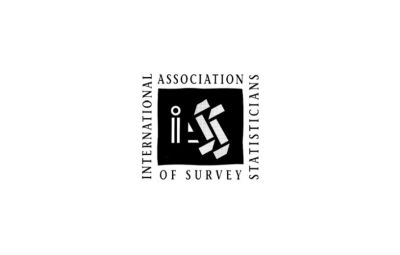The September 2023 issue of the SJIAOS, the first under new Editor in Chief, Pietro Gennari, is now available. It features interviews with incoming IAOS President Dominic Rozkrut, and Reimund Mink, author of the recently published book “Official Statistics - A Plaything of Politics?" On the interaction of Politics, Official Statistics, and Ethical Principles”. The issue also has papers related to the Impact of COVID19 on Official Statistics (especially on the fundamental changes for Central Banks on what and how data should be used), as well as a wide range of papers on Sources, Methodologies and Techniques in official statistics.
The content of the issue in more detail:
This issue of the Journal (the first one for Mr. Pietro Gennari as Editor-in-Chief) opens with two interesting Interviews.
The first interview, carried out by Pieter Everaers, is with Dominik Rozkrut, the new President of the IAOS for the biennium 2023-2025. In this interview, we learn more about Dominik’s professional background, his experience as an official statistician and the initiatives undertaken as President of Statistics Poland during the Covid-19 pandemic and the war in Ukraine. We also get to know in more detail his plans as President of the IAOS, supporting the mission of building and maintaining trust in official statistics.
The second interview, conducted by Ivo Havinga, is with Reimund Mink, a former employee of the European Central Bank, who has recently published the book “Official Statistics – A Plaything of Politics?: On the interaction of Politics, Official Statistics, and Ethical Principles”. The book provides a detailed account of the cases of unacceptable and unethical political interference in the production of official statistics he experienced in his professional career as a government finance statistician, not only in the European context but also in some non-European countries. The book is also a rich source for dedicated reflections and lessons on the implementation of the UN Fundamental Principles of Official Statistics from a human rights perspective.
The second section of the Journal, dedicated to The Impact of COVID-19 on Official Statistics, a topic present in every issue since 2020, features an article that shows how central banks are fundamentally rethinking the way data should be produced and used in the “new normal” state after the pandemic, by relying more heavily on data science, making a better use of the large amount of the available micro-level information, adapting statistical frameworks to meet evolving policy objectives and user needs, and cooperating closely with other relevant stakeholders.
The third section collects six articles on different Specific Statistical Domains: from population projections using categories that go beyond the woman/man distinction, to register-based information system for mortality statistics; from the concept of social cohesion and its measurement issue, to the impact of inflation on households’ consumption patterns of different income groups at various geographical level in Iran; from the increasing economic integration of U.S. industries during the period 1939–1958, to the level of trade integration between Ukraine and the EU countries in recent years.
The fourth section of the Journal addresses topics related to Data Sources, Statistical Methodologies and Techniques covering various challenges faced by official statisticians in the various stages of the statistical production process: from the opportunity of using prefilled forms in business surveys, to the presence of systematic errors in self-reported industry classification codes on business tax forms; from the adoption of a new test to detect bubbles in financial time series, to the Methodological challenges in Compiling an inclusive growth index; from the use of Small area estimation models to better estimate at district level household participation rates in insurance programmes against the risk of losses from natural disasters, to the testing of a new search engine system based on neural networks for increasing the accessibility of official statistics.
The issue ends with a regular update on the open discussions on the SJIAOS discussion platform www.officialstatistics.com, and a brief look into the next two issues of the Journal.




